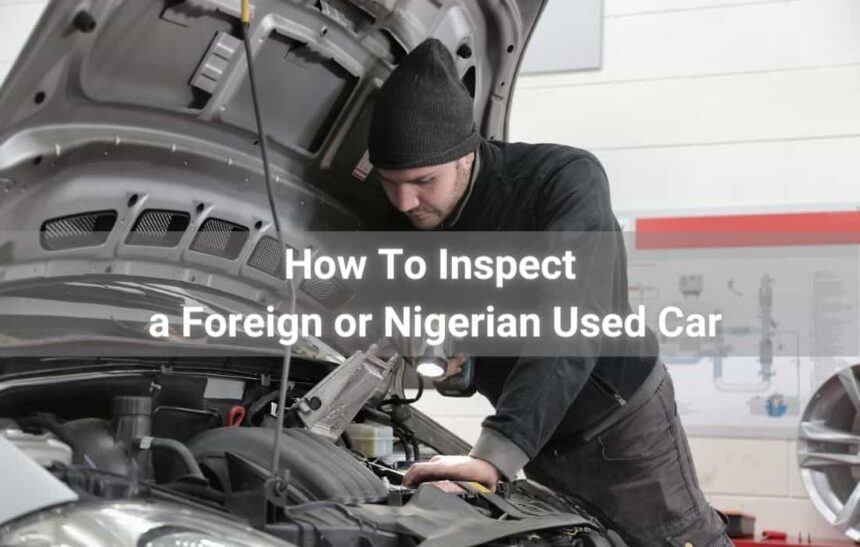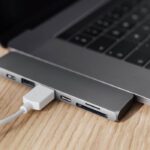Buying a foreign (tokunbo) or Nigerian used car can be a discouraging task, but inspecting it thoroughly can give you peace of mind and ensure you get a reliable vehicle. To avoid regretting your car-buying decision, here are important things to inspect or check when buying a foreign or Nigerian used car.
The first step in inspecting a used car is to check its exterior thoroughly. Look for any signs of rust or dents, and ensure the paint is consistent across all parts of the car. Inspect the tires, ensuring they are not worn out or have uneven wear patterns. Check the lights and mirrors, ensuring they are functioning correctly. Lastly, check under the car for any signs of leaks or damage.
Once you have completed the exterior inspection, it’s time to move on to the car’s interior. Begin by examining the seats, carpets, and dashboard for any indications of wear and tear. Be on the lookout for any musty smells or signs of dampness, as this could be an indication of water damage.
Check that the windows and mirrors are working correctly, and then proceed to inspect the vehicle’s mechanical components, including the engine, transmission, brakes, and suspension. If you are not familiar with the mechanical aspects of the vehicle, it’s advisable to bring along a trusted mechanic to perform a more thorough inspection. Ultimately, a comprehensive inspection of a used car can help you make an informed decision and ensure that you purchase a dependable vehicle.
List of Steps To Follow When Inspecting a Foreign or Nigerian Used Car
To make a sound investment, it is essential to conduct a thorough inspection of a foreign or Nigerian used car before buying it. Below are six things to check when buying a foreign or Nigerian used car.
1. Obtain a Vehicle History Report
Obtaining a vehicle history report is an important step when buying a used car. A vehicle history report provides information about the car’s past, including any accident, repairs, or other incidents that may affect its value or safety. Here’s how to obtain a vehicle history report:
- Get the car’s vehicle identification number (VIN): The VIN is a unique 17-digit code that identifies the car. This is also a widely used method to verify if your car has been in an accident. You can find the VIN on the car’s dashboard, door frame, or engine block.
- Choose a provider: There are several providers that offer vehicle history reports, such as Carfax, AutoCheck, and VINCheckPro. Choose one that suits your needs and budget.
- Review the report: Review the report carefully to look for any issues or concerns. Pay attention to any accidents, repairs, or other incidents that may affect the car’s value or safety.
- Use the report to make an informed decision: The vehicle history report can help you make an informed decision about whether to buy the car. If the report shows a history of major accidents or repairs, you may want to reconsider the purchase or negotiate a lower price.
2. Check the Exterior

During an exterior inspection of a foreign or Nigerian used car, you will assess the overall state of the vehicle’s body, paint, tires, lights, mirrors, and other external components. The purpose of this examination is to detect any indications of damage or wear and tear, such as dents, scratches, rust, or inconsistent paint. It is crucial to check the tires to ensure they have even wear patterns and are in good condition.
By inspecting the lights (including headlights, taillights, brake lights, and turn signals) and mirrors, you can ensure they are in proper working order, allowing for clear visibility while driving. Additionally, examining the undercarriage of the vehicle is essential to detect any leaks, damages, or signs of mechanical wear and tear. By conducting a comprehensive inspection of the exterior, you can identify significant issues that may affect the car’s safety, performance, and value.
3. Check the Interior
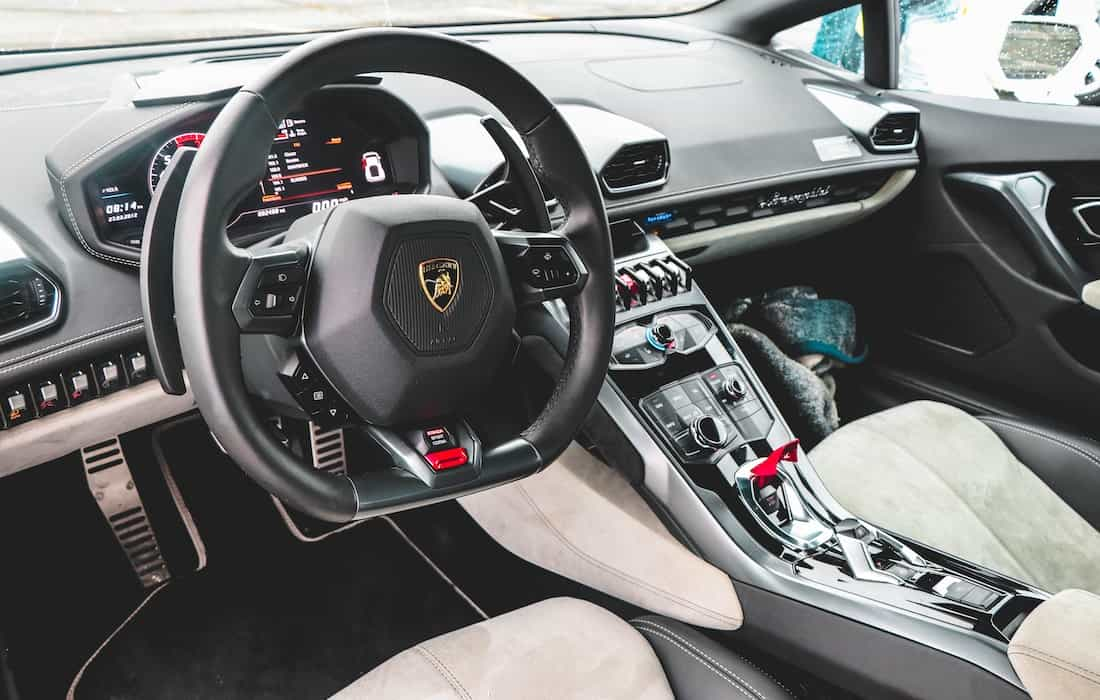
When inspecting the interior of a foreign or Nigerian used car, you will assess the condition of the seats, carpets, dashboard, windows, and other internal components. You will look for signs of damage or wear and tear, such as stains, tears, cracks, or indications of dampness. It is essential to examine the windows and mirrors to ensure that they are working well and free from cracks or chips. Checking the performance of the car’s air conditioning, heater, radio, and other internal systems is also important.
Additionally, you should watch out for any warning lights on the dashboard that may signal significant issues with the car’s systems. Conducting a thorough inspection of the interior will help you identify any concerns that require attention and allow you to make an informed decision on whether or not to purchase the vehicle.
4. Inspect Under the Hood

Inspecting under the hood of a foreign or Nigerian used car means you have to inspect the engine compartment, you will examine the engine, transmission, brakes, suspension, and other mechanical components. You will assess the levels and cleanliness of essential fluids, including engine oil, transmission fluid, brake fluid, power steering fluid, and coolant.
Additionally, you will check for any indications of leaks or damages to belts, hoses, and other mechanical parts. It is also crucial to examine the battery, alternator, and starter to ensure they are in good working order. Furthermore, you will assess the condition of the air filter, spark plugs, and other components that may need servicing or replacement. By conducting a thorough inspection of the mechanical components under the hood, you can assess the car’s overall condition and make an informed decision on whether to purchase it or not.
5. Take a Test Drive

When inspecting a used foreign or Nigerian car, taking a test drive is an important step that should not be overlooked. The process involves driving the vehicle for a significant distance on different road types, including highways, local streets, and rough terrain, to evaluate its condition and performance. During the test drive, you will assess vital systems such as the steering, acceleration, braking, transmission, and suspension, among others.
Additionally, you will listen for any unusual sounds, rattles, or vibrations that could indicate mechanical issues with the car. You will also observe how the vehicle handles and brakes, including its response to various driving conditions like turns, curves, and sudden stops. By taking a test drive, you can develop a sense of how the car operates, you can pinpoint any problems that require addressing before making a purchase decision.
6. Check the Paperwork
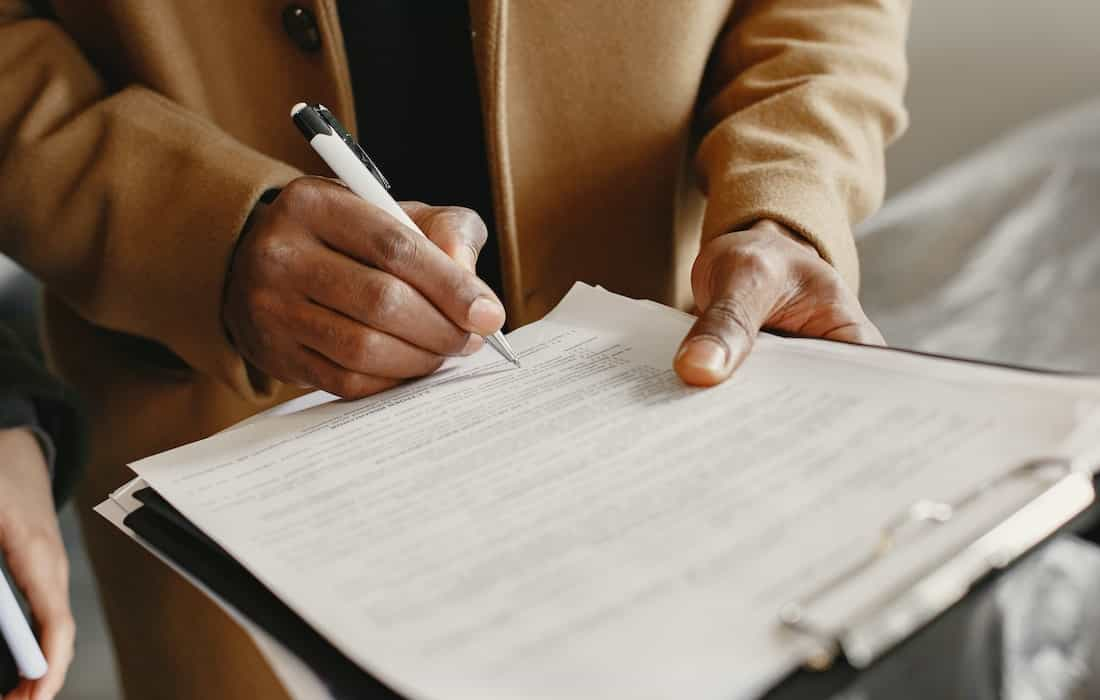
Checking the paperwork is a very important step in purchasing a used foreign or Nigerian car. It involves carefully examining all the necessary documents related to the car, such as the vehicle registration certificate, insurance papers, and previous service records. You need to verify the registration documents’ validity, confirm that the vehicle identification number (VIN) on the papers matches the one on the car, and check the insurance papers for any accident history or outstanding claims.
Reviewing the previous service records can give you a good idea of the car’s maintenance history and any significant repairs that have been done. Additionally, you need to obtain a bill of sale or a purchase agreement that outlines the terms of the sale, including the agreed-upon price, payment terms, and any warranties or guarantees. It’s important to ensure that the seller signs the documents and that they are notarized, if necessary.
Checking the paperwork helps to confirm the car’s ownership and history and ensures that the transaction is legal and binding. It also helps you avoid any potential scams or fraudulent deals, making sure that you are making a wise investment in your car.
7. Get a Professional Inspection
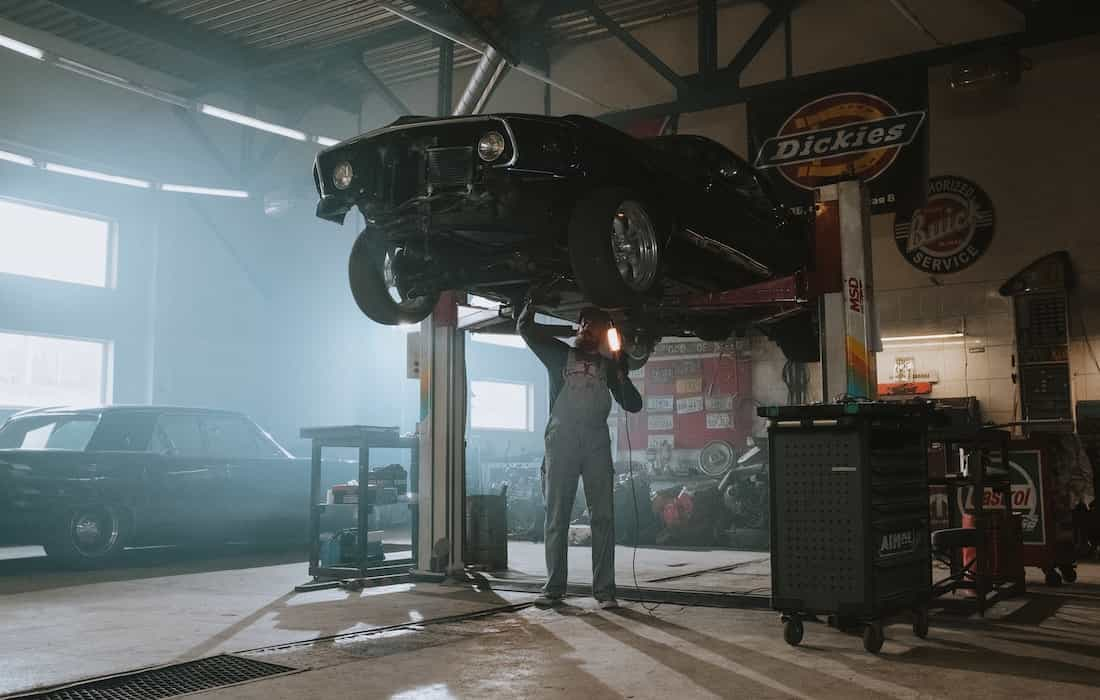
Getting a professional inspection is an extra step you can take when inspecting a foreign or Nigerian used car. This involves hiring a certified mechanic or technician to carry out a thorough examination of the vehicle’s mechanical components, electrical systems, and bodywork. A professional inspection can provide you with a detailed report of the car’s condition and uncover any hidden problems or potential issues that may require repairs or servicing.
During the inspection, the professional mechanic will use specialized tools and equipment to check the engine, transmission, brakes, suspension, and other essential systems. They will also assess the condition of the bodywork, paint, and interior and look for any signs of previous accidents or damage.
Getting a professional inspection can give you peace of mind and enable you to make an informed decision about whether to purchase the vehicle or negotiate a better price based on the report’s findings. It can also help you avoid buying a car with significant issues that may end up costing you more money in the long run.
Conclusion
You have come to the end of our article that reveals the things to check when buying a foreign or Nigerian used car. These steps can guide you in conducting a thorough inspection of a foreign or Nigerian used car, which will definitely help you make a good decision on whether to buy the vehicle or not.




